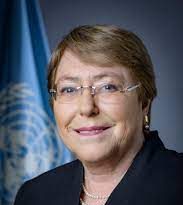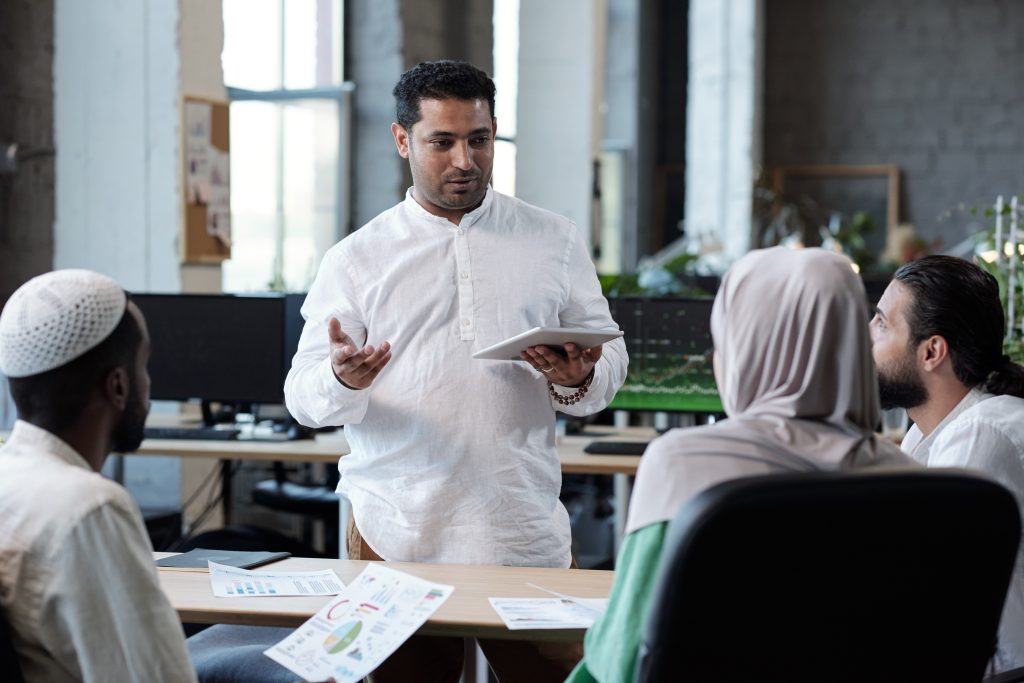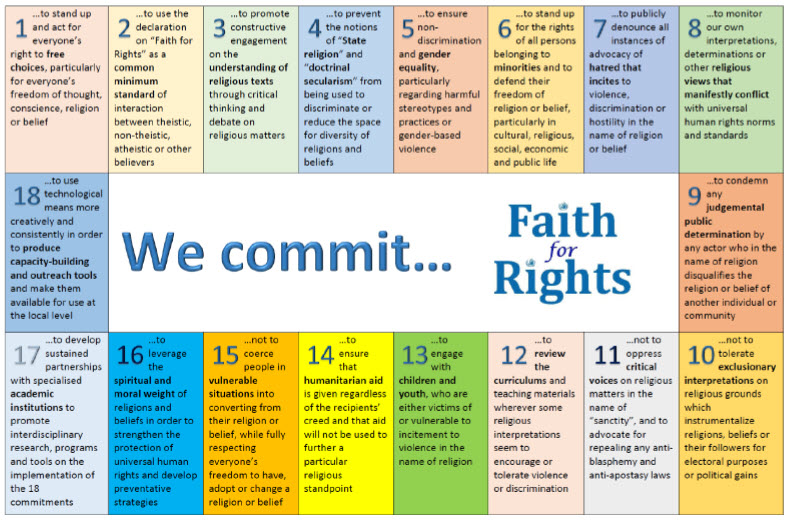What is Faith for Rights?

Read the following information, then complete the reflection questions. Click NEXT to continue.
The “Faith for Rights” framework provides space for a cross-disciplinary reflection and action on the connections between religions, beliefs and human rights. The objective is to empower faith actors to contribute to fostering peaceful societies, which uphold human dignity and equality for all and where diversity is not just tolerated but fully respected and celebrated.
The Faith for Rights program is intended for use by faith actors, civil society representatives, student groups, and human rights activists. This website is one of many Faith for Rights resources that will enable you, a facilitator, to successfully conduct discussions and lead peer-to-peer activities on a variety of topics central to “faith” and “rights”. Click here to visit the United Nations Office of the High Commissioner for Human Rights #Faith4Rights website for additional information.
This lesson will provide the information you need to have a firm understanding of the origin of the Faith for Rights program, the 18 commitments contained therein, and how to get started on your journey as a Faith for Rights Facilitator.

Answer the following reflection questions in your Facilitator Journal:
- Why would you like to become a Faith for Rights Facilitator?
- How can "faith" stand up for "rights"?
- Read the 18 commitments below. Which one is most important to you? Why?
18 Commitments on Faith for Rights
